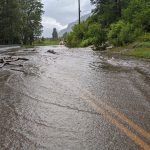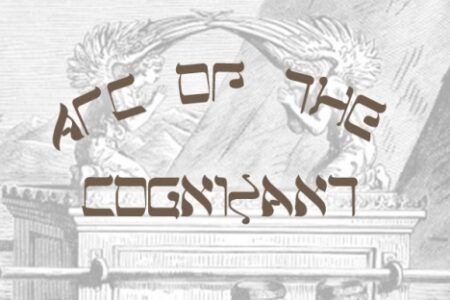Newsletter from MLA/Minister Katrine Conroy
On Sept. 30, people across British Columbia and the entire country observe Orange Shirt Day to honour the children who suffered in the residential school system and to remind all Canadians that “Every Child Matters.”
Since 2021, Sept. 30 is also the National Day for Truth and Reconciliation. This year marks the first time that this day of remembrance covers the entire workforce, as all parties in the legislature voted to enshrine it in provincial law. This is just one of the ways we are responding to the Truth and Reconciliation Commission’s Calls to Action.
We must, alongside Indigenous peoples, take steps to ensure that all British Columbians are aware of the history and legacy of residential schools, and the lasting effects of colonialism.
On Monday, Sept. 25, many members of our caucus, alongside Indigenous leaders, residential school survivors and colleagues from three provincial parties, raised the Survivors’ Flag at the B.C. Legislature. Our government recognizes that there is so much more work that needs to be done, but we are committed to building lasting and meaningful relationships with Indigenous communities across the province and to strive for true reconciliation.
We encourage British Columbians to approach the National Day for Truth and Reconciliation with reverence, humility, and respect. Across B.C. various local events are taking place, and these are important opportunities to engage and learn more about the history of Indigenous people in your community. Residential schools are just one of many truths that we need to reconcile with, and it’s important that while we do, we look to and listen to our Indigenous community members’ lived experiences.
I hope that we can all learn a little bit more about the experience of residential school survivors and their families, while acknowledging the strength, resilience and contributions of Indigenous communities in B.C.
Habitat for Humanity Southeast BC Castlegar 4-plex opening ceremony Sept. 28, 2023.
I’m thrilled to have been a part of last week’s Castlegar Housing announcement. With a growing population, we need more homes to address the pressures of the housing and rental market today and have an affordable housing supply for the future. Our government knows that people have been struggling just to keep up with the cost of living and finding affordable housing. That’s why we’re choosing to invest in projects like this.
Families need safe, affordable housing where they can build a life and raise their children. Our government is proud to have provided a $200-thousand grant to make these homes a reality. So that families here in Castlegar can have new opportunities, security and the peace of mind that comes with staying in their community, close to school, friends and loved ones.
Since 2017, the Province has nearly 77,000 homes that have been delivered or are underway, including over 700 homes in the Kootenay region. This progress would not be possible without strong community partnerships.
Thank you to the Habitat for Humanity Southeast BC, City of Castlegar, and Columbia Basin Trust for all your hard work and dedication! Congratulations to the four families whom will call this place home, your commitment, perseverance and labour is inspirational. We will continue to work in partnerships to make housing more affordable for people in our province.
Canada’s Prime Minister Justin Trudeau met with British Columbia’s premier David Eby in his office on Parliament Hill in Ottawa on Sept. 25, 2023. | Photo Credit: Reuters
Premier Eby and a B.C. delegation met with Prime Minister Justin Trudeau as well as other senior federal ministers to discuss opportunities in the clean-energy sector, support for critical infrastructure needs in communities, and national support to respond to emergencies such as wildfires and floods, as well as the need to build more homes, faster.
Expanded travel programs benefit patients needing cancer care
Patients around B.C., especially those living in rural and remote areas, will benefit from improved access to life-saving cancer care as the province provides $20 million to expand medical travel support. Government is partnering with the Canadian Cancer Society and Hope Air to expand their existing programs in B.C. that aim to support all facets of cancer patient travel. The Canadian Cancer Society will expand its three programs: the Travel Treatment Fund (TTF), which provides grants to patients for travel expenses; the Wheels of Hope program, which matches patients with volunteer drivers; and their four lodges, which offer accommodation and meals for patients and their caregivers near cancer centres in Victoria, Vancouver, Kelowna and Prince George. Hope Air will expand its services to increase support for patients and caregivers through increased ground transportation, overnight accommodations and meal vouchers for patients. They will also provide 2,500 flights for patients in B.C. travelling to receive cancer treatment by 2026.
Physician assistants are one step closer to joining B.C.’s health-care workforce
Physicians and patients may soon have another resource in health care as consultation begins on bylaw changes to enable physician assistants to work in emergency departments in British Columbia. The proposed amended bylaw will allow physician assistants to practice in emergency departments under the direction and supervision of physicians and will require them to register with the College of Physicians and Surgeons of British Columbia (CPSBC). Physician assistants working in emergency departments will increase the workforce that provides emergency services and improve access to care for patients.
Provincial investment helps community organizations offer British Columbians healthy food
Food insecurity has increased because of inflation, supply-chain issues and climate emergencies that interrupt food supply and production. People living on low incomes and struggling to put food on the table will have better access to nutritious food with a provincial investment of $14 million into the Critical Food Infrastructure Fund for local community organizations. This investment addresses the diverse challenges faced by local community groups and First Nations, strengthening food security for all British Columbians.
New funding supports quality of life improvement, poverty reduction for B.C. First Nations
First Nations across B.C. will benefit from a $15-million investment from the province to the First Nation Well Being Fund. The fund supports the development of community-led solutions for B.C. First Nations to develop a well-being plan or framework, and to consider how they might develop indicators that measure the progress of wellness within their communities. The new investment will create additional opportunities for First Nations to undertake activities that focus on closing the identified poverty gaps communities face to improve and restore their social well-being and economic prosperity to levels enjoyed prior to colonialism and by other British Columbians.
Province continues spotted owl recovery efforts with release of two birds into the wild
Two spotted owls have been released into protected habitat in the Fraser Canyon as part of ongoing work the province is doing in partnership with Spuzzum First Nation to recover northern spotted owl populations in B.C.’s wild. The province has also protected more than 280,000 hectares of spotted owl habitat, which is enough to support a future population of 125 breeding pairs. This is the Spotted Owl Breeding and Release Program’s second release of captive-bred spotted owls into the wild.
My community office is open Monday to Thursday 10-3pm. Please call or email in advance to let Angelika or Sarah know when you are planning to come in so they can be ready in advance to assist you. If you have any questions or concerns about any provincial issue, or need assistance with a provincial body, please don’t hesitate to reach out. We’re here to help. My office can be reached at 250-304-2783 or Katrine.Conroy.MLA@leg.bc.ca.
Helpful resources:
- Find evacuation information and other emergency info during wildfires emergencyinfobc.gov.bc.ca/
- Find mental health and substance-use supports: wellbeing.gov.bc.ca
- National Indian Residential School Crisis Line: 1-866-925-4419


























Comments